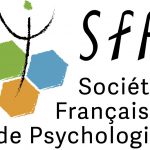- Aha! New Insights about Insight, European Society for Cognitive Psychology
- Artificial Intelligence in Psychological Assessment, European Association of Work and Organizational Psychology
- Contributions of Social Psychology to the Solution of Pressing Societal Problems, European Association of Social Psychology
- Early Development of Superior Cognitive Functions, European Association for Developmental Psychology
- The Emergence of a Broadly-Defined European Cultural Psychology, International Association for Cross-Cultural Psychology
- Funding Opportunities in the Social, Behavioral, and Economic Sciences at the US National Science Foundation, US National Science Foundation
- Future Applications of the Social and Behavioral Sciences to Intelligence Analysis, Board on Behavioral, Cognitive, and Sensory Sciences, US National Academies of Sciences, Engineering, and Medicine
- Negotiating Challenges to Scientific Advancement: Disappointment, Delays, and Declines; Women in Cognitive Science
- Personality Research Offers Windows into Psychological Development, Relationships, Success, Health, and Ageing, European Association of Personality Psychology
- The Science of Clinical Practice, and How to Get There, Psychological Clinical Science Accreditation System & Société Française de Psychologie
- Social Relations Within and Across Cultures, International Society for the Study of Behavioural Development
- US National Science Foundation Funding: Increasing Your Chance of Success, US National Science Foundation
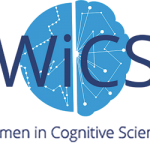 Women in Cognitive Science (WiCS)
Women in Cognitive Science (WiCS)
Negotiating Challenges to Scientific Advancement: Disappointments, Delays, and Declines
Thursday, 7 March 2019 | 15:00 – 16:50 (3:00 – 4:50 PM) | Room 351
A critical aspect of scientific training is to develop constructive responses to outcomes that are not successful. Every successful scientist/professional has stories of rejected papers and proposals. Once an individual is successful, rejections can be placed in context. Early in a person’s career, the same rejections may be devastating. The difficulty of processing rejections may also prevent early stage researchers from hearing what is genuine in the critique of their work and to understand what might not be genuine. The WiCS panel will address these issues.
 US National Science Foundation
US National Science Foundation
US National Science Foundation Funding: Increasing Your Chance of Success
Chair: Betty Tuller, US National Science Foundation
Friday, 8 March 2019 | 8:30 – 9:50 (8:30 – 9:50 AM) | Room 352A
This presentation and Q&A session will provide information and tips for applying for US National Science Foundation (NSF) funding. Program officers will discuss NSF merit criteria, the review process, how to interpret NSF terms, and strategies for writing an application that increase your chance of success.
Funding Opportunities in the Social, Behavioral, and Economic Sciences at the US National Science Foundation
Chairs:
Tamera Schneider, US National Science Foundation
Marc Sebrechts, US National Science Foundation
Saturday, 9 March 2019 | 8:30 – 9:50 (8:30 – 9:50 AM) | Room 352A
The US National Science Foundation has many opportunities for funding innovative, basic social, behavioral, and economic science. This presentation provides an overview of the Foundation and Programs in the Social, Behavioral, and Economic Sciences Directorate. Funding opportunities for collaborating with your U.S. colleagues are discussed.
 European Association of Work and Organizational Psychology
European Association of Work and Organizational Psychology
Artificial Intelligence in Psychological Assessment
Chair: Annemarie Hiemstra, Erasmus University Rotterdam
Friday, 8 March 2019 | 11:30 – 12:50 (11:30 AM – 12:50 PM) | Room 352A
Rapid developments in Artificial intelligence (AI), such as machine learning, are increasingly affecting human behavior. Psychology is needed to understand these influences. Furthermore, AI influences psychological science itself. Departing from work psychology and personnel selection, this symposium discusses how strengths of psychology and AI can be combined to improve assessment.
Psychological Clinical Science Accreditation System & Société Française de Psychologie
The Science of Clinical Practice, and How to Get There
Chair: Raphaël Trouillet, University of Montpelier, University of Paul Valéry Montpellier, and Société Française de Psychologie
Friday, 8 March 2019 | 13:00 – 13:50 (1:00 – 1:50 PM) | Room 341
Clinical psychologists increasingly advocate that clinical training and practice should be based on scientific knowledge. This clinical science model showcases the primacy of scientific knowledge and training models in which science is fully integrated into all aspects of clinical training. The symposium examines exciting developments in clinical science and clinical science training from differing international perspectives.
 European Society for Cognitive Psychology
European Society for Cognitive Psychology
Aha! New Insights about Insight
Chairs:
Eva Van den Bussche, Vrije Universiteit Brussel
Hans Stuyck, ULB and KU Leuven
Friday, 8 March 2019 | 13:00 – 14:20 (1:00 – 2:20 PM) | Room 352A
The sudden comprehension of a previously unsolved problem is often accompanied by the well-known Aha! feeling. However, the underlying cognitive processes that lead to this kind of insight remain unclear. In this symposium we will use a cross-scientific-domain perspective to elucidate the neurological and cognitive mechanisms behind the Aha! moment.
 European Association of Social Psychology
European Association of Social Psychology
Contributions of Social Psychology to the Solution of Pressing Societal Problems
Chair: Kai Sassenberg, Leibniz-Institut für Wissensmedien & University of Tübingen
Friday, 8 March 2019 | 14:30 – 15:50 (2:30 – 3:50 PM) | Room 352A
Social psychology has a tradition of studying humans in contexts of pressing societal problems. Providing a deeper understanding of human behavior and its change, it can thus contribute to the understanding and solution of these problems. This symposium features contributions applying social psychology to environmental, media, and health related problems.
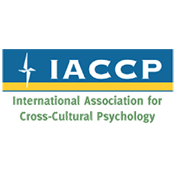 International Association for Cross-Cultural Psychology
International Association for Cross-Cultural Psychology
The Emergence of a Broadly-Defined European Cultural Psychology
Chair: Matthias Gobel, Brunel University
Friday, 8 March 2019 | 16:00 – 17:20 (4:00 – 5:20 PM) | Room 352A
This symposium is a starting point for a broadly-defined European cultural psychology. We explore what a European culture may entail, how acculturation within the European cultural contexts takes place, and under what conditions a multicultural Europe can be possible. We also discuss what is currently missing from this research agenda.
 European Association of Personality Psychology
European Association of Personality Psychology
Personality Research Offers Windows into Psychological Development, Relationships, Success, Health, and Ageing
Chair: René Mõttus, University of Edinburgh
Friday, 8 March 2019 | 17:30 – 18:50 (5:30 – 6:50 PM) | Room 352A
Personality research draws on other fields of psychology, synthesizing the phenomena that they focus on. But it also has a lot to contribute in return, as highlighted in this symposium. One central contribution is showing how individuals are not passive recipients of external influences but actively create their own experiences.
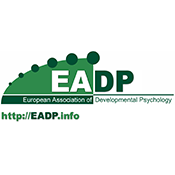 European Association for Developmental Psychology
European Association for Developmental Psychology
Early Development of Superior Cognitive Functions
Chair: M. Rosario Rueda, Universidad de Granada
Saturday, 9 March 2019 | 10:00 – 11:20 (10:00 – 11:20 AM) | Room 352A
The early development of superior cognitive functions during infancy and toddlerhood has undergone enormous progress in the past decades, thanks to technological advancements and researchers’ creativity. In this symposium, we will discuss timely research in the early development of four cognitive domains: language, social cognition, action understanding, and executive attention.
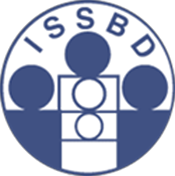 International Society for the Study of Behavioural Development
International Society for the Study of Behavioural Development
Social Relations Within and Across Cultures
Chairs:
Toni C. Antonucci, University of Michigan
Kristine J. Ajrouch, Eastern Michigan University
Saturday, 9 March 2019 | 13:00 – 14:20 (1:00 – 2:20 PM) | Room 352A
We examine social relations in different ages and cultures. Yamamoto and Li consider cultural differences in children’s perceptions of parental support. Ajrouch and Antonucci examine race differences in friendship in the US. Vogel, et al. consider volunteering among German immigrants while Jackson reports on US cross-race friendships. Finally, Akiyama discusses social relations in Japan’s changing society.
 Board on Behavioral, Cognitive, and Sensory Sciences
Board on Behavioral, Cognitive, and Sensory Sciences
US National Academies of Sciences, Engineering, and Medicine
Future Applications of the Social and Behavioral Sciences to Intelligence Analysis
Chairs:
Sujeeta Bhatt, US National Academies of Sciences, Engineering, and Medicine
Barbara Wanchisen, US National Academies of Sciences, Engineering, and Medicine
Saturday, 9 March 2019 | 16:00 – 17:20 (4:00 – 5:20 PM) | Room 352A
The evolving nature of national security threats requires intelligence analysts to utilize cutting-edge knowledge and methods. Social and behavioral science research (focused on human behavior and social processes) is critical to the development and application of methods used in intelligence analysis. Examples of cutting-edge, interdisciplinary research and applications are discussed.





